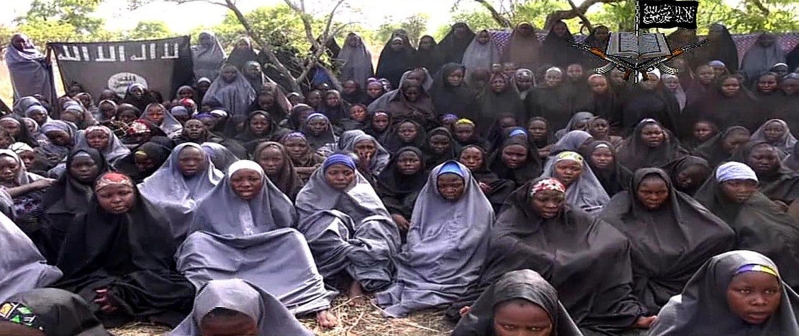
Dozens of Christian Nigerian women and girls abducted by the militant group Boko Haram experienced a range of horrific abuses at the hands of their captors including sexual and physical abuse, forced religious conversion and marriage, reveals a new report.
The Human Rights Watch report, titled "Those Terrible Weeks in Their Camp," reveals shocking information obtained from in-depth interviews with 30 women who were kidnapped by Boko Haram, and 16 individuals who witnessed the abductions.
The victims who were interviewed were held in eight different militant camps hidden throughout the country's northeast.
Earlier this year, Boko Haram made international headlines when militants abducted 276 girls from a school in the small town of Chibok--a predominantly Christian region. The Human Rights Watch interviewed 12 girls who escaped, while approximately 219 schoolgirls still remain in captivity.
In providing details of the abuses they endured, the women and girls described how they were abducted from their homes and villages while working on the farms, fetching water, or attending school.
According to the report, the militants forced the women to reject Christianity and convert to Islam. If they refused, they were subjected to physical and psychological abuse; forced labor; forced participation in military operations, including carrying ammunition or luring men into ambush; forced marriage to their captors; and violent sexual abuse.
One young woman, who was not named for safety reasons, said she was threatened with hanging unless she agreed to renounce her Christian faith. She told Human Rights Watch she eventually agreed because she feared for her life.
"I was dragged to the camp leader who told me the reason I was brought to the camp was because we Christians worship three gods. When I objected to his claim, he tied a rope around my neck and beat me with a plastic cable until I almost passed out," she said.
"An insurgent who I recognized from my village convinced me to accept Islam lest I should be killed, so I agreed."
Another young woman held in a camp near Gwoza described how militants placed a noose around her neck and threatened her with death until she renounced her religion. Other victims were threatened with whipping, beating, or death unless they converted to Islam, stopped attending school, and complied with the Islamic dress code.
"These women and girls have experienced--and still are experiencing--unthinkable violations of their very basic human rights primarily due to their Christian faith and desire for education," said sociologist Carolyn Wysong.
"Sadly, if the Nigerian government does not act soon, this terrible problem will only grow worse."
To combat the widespread violence carried out by Boko Haram, the Human Rights Watch has made several recommendations to the Nigerian government. The recommendations include increasing medical and mental health services for victims of abduction and violence; prosecute members of Boko Haram and pro-government vigilante groups who committed crimes in violation of international law, and establish an independent commission to probe allegations of human rights abuses by government security forces.
The group is also urging Boko Haram to comply with the principles of international humanitarian and human rights law and to end immediately the killing, maiming, rape, and abduction of Nigerian women and girls.







